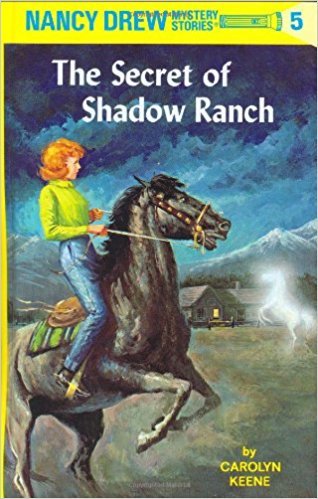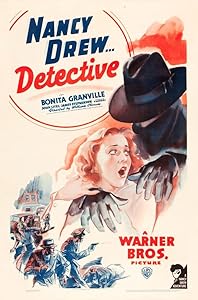In Fer-De- Lance, we meet the iconic duo of Nero Wolfe and Archie Goodwin. Nero Wolfe, a Yugoslavian refugee, is a highly famous and prolific private detective working out of his Manhattan brownstone. His chief interests are crime (for the right price), beer, elaborate and well-cooked meals, and orchids. His household comprises his paid lackey, Archie Goodwin, the secretary, errand boy, and principal investigator. Archie is the man who gets his hands dirty in cases; he chases down leads, brings witnesses to Nero Wolfe, and organizes any henchmen that are needed for the more physical parts of investigations. Archie is also keen on the ladies, quick-witted, and a fast talker. He’s a genuinely good lieutenant and is devoted to Nero Wolfe. Their dynamic reminds me of the crime boss and his most trusted second, except they solve crimes instead of perpetrating them. The Wolfe household is rounded out by a private chef, Fritz, who is handsomely paid to cook elaborate meals and ensure there’s always a stock of beer.
Wolfe has just finished the Fairmont National Bank Case the previous week, and Archie Goodwin, the narrator of the Wolfe series, is a little bored of running errands and in walks Fred Durkin with a troubled young woman, Maria Maffei, who has a strange story to tell Nero Wolfe.
Maria Maffei worries that something awful has happened to her brother, Carlo Maffei, who has gone missing. After listening to Maria’s garbled tale, Nero Wolfe sends Archie to investigate Carlo’s room at the boarding house for clues. His room is pretty well kept, and clues to his whereabouts are sparse. Still, Miss Anna Fiore, another boarder, who often gave her newspaper to Carlo after she finished reading it, said he acted very queer after she gave him the newspaper a few days previous. She also overheard Carlo having a heated and suspicious phone call before disappearing. Archie finds the newspaper mentioned above in Carlo’s room with an article cut out and reports back to Nero Wolfe.
Wolfe quickly arranges to get a copy of the newspaper. The article is about the death of university president Peter Oliver Barstow, who was golfing with his son and friends and suffered a sudden heart attack. Nero Wolfe is immediately suspicious of Barstow’s accidental death. When Carlo’s body is found, he knows these two men have a definite connection, despite their totally different lives. Nero Wolfe demands that Barstow’s body be exhumed and checked for poison and sends Archie Goodwin to the grieving Barstow family to get their assent. Archie finds the family a little strange but also secures their cooperation; Mrs. Barstow even hires Wolfe to find her husband’s killer.
The investigation, full of mind games and dead ends, turns deadly for Nero Wolfe when his devious enemy sends him a Fer-De-Lance, a deadly venomous snake, as a present. Now it’s a match between two of the cleverest minds in history, as Nero Wolfe solves who killed Peter Oliver Barstow and Carlo Maffei and why.
The Review
I was surprised how fully formed all of the characters were from the first page; as someone whose only exposure to Nero Wolfe was a snatch of the tv show every once in a while, it was interesting how true to life the tv show was to the source material. I think Nero Wolfe’s larger-than-life personality and idiosyncrasies of speech, dress, and manner are brought to life by the incredible writing style of Rex Stout. The comparisons of Nero Wolfe to Mycroft Holmes are apt but simplistic comparison. Nero Wolfe is wholly motivated by money, food, and the pleasures of life. Still, even in the first novel, it is broadly hinted that Neo had a difficult life full of hardship before he immigrated to the United States. He has no desire to suffer or scrimp and wants to live a life of absolute luxury.
Nero Wolfe’s devotion to his comfort drives the strange dynamic between Archie Goodwin and himself. He doesn’t need Archie’s brains- although he seems a perfectly capable and, on occasion, clever flat foot, he does need his insatiable desire to always be “doing something.” Archie Goodwin is never as happy as when on an important task. Nero Wolfe’s attitudes and desires drive the whole investigative operations- when he is willing to hunt, there’s action, and when he’s depressed or bored, the entire household grinds to a halt.
Archie Goodwin is flying high from the Fairmount National Bank case, which took place before the action in this book, and is excited to figure out what happened to Carlo Maffei but soon realizes this case is above his mental prowess. The person who killed Peter Oliver Barstow was cunning and, like Nero Wolfe, was well-suited to finding lackeys to carry out his murders. The real difficulty is how to draw out a mind, cut from the same cloth as Nero Wolfe, and draw a mastermind thinker into the open.
As Archie and Nero round-up lackeys and demolish unwilling suspects, the calculated violence grows while the desire to finally be drawn out becomes the only option. The book is very good at escalating tension and violence in response to the repeated failed attempts to kill Nero Wolfe and to cover up the deaths of Carlo Maffei and Peter Oliver Barstow.
It’s a pleasure to be dropped into this heightened world where the good and bad guys are wrong, and the dames are dames. There’s little nuance in characterization, but sometimes broadly drawn characters can be fun.
In line with the slow ratcheting of suspense, the Fer-De-Lance scene, which graces the cover of the book and is highlighted on the dustjacket, doesn’t actually take place until reasonably late in the book and the actual snake is dealt with swiftly and deftly. The Fer-De-Lance is more metaphorical; a deadly person lies in wait, biding time until it can deliver a swift and deadly strike. I enjoyed this more metaphorical take, and it’s nice that there is definite authorial intent towards a deeper meaning. Still, I would have enjoyed a longer or more drawn-out scene with the actual Fer-De- Lance in the book, which is surprising since I find snakes repulsive.
The ending is heightened but imbued with preordained tragedy and sadness. Three families are destroyed in Fer-De-Lance, acknowledged and even briefly mourned by Nero Wolfe, giving his character more pathos and depth than his lap dog, Archie Goodwin, who only sees these mysteries as great adventures. A lot of sadness is subtly tucked away beneath the brash characters and the dizzying heights they will go to catch a killer.
I am looking forward to my next Nero Wolfe mystery. Have you read Fer-De-Lance, if so what did you think?





Leave a comment